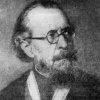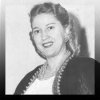from his book Preaching in the Russian Church,
San Francisco, 1899.
How long will it thus go on! When will the baptized become active Christians, so that the pastors may give their attention to the conversion of the heathen? What a terrible battle we must fight. Already the fire of hell is in the world. Great cities are multiplying throughout the land. The farmer, as the word is defined in our dictionaries, is a thing of the past. It is now the land-owner with a mansion in the city, a yacht on the sea, and with a private train across the continent. There are comparatively but a few laborers in the fields—too poor to support families. The quiet country homes are becoming few, shall I say precious? I fear not so, because people are fast losing their ability to rightly estimate the value of things. Most of the cities in all the world are overcrowded. The female portion of the population is most conspicuous. A stupid craze after unwholesome fashions is the one all-absorbing passion of the majority of women. There is no room for gardens and yards; most of the children in San Francisco are actually brought up in the streets.
.Oh, how few of them feel the blessed influence of a Christian home! Young men and young women are continually "on the go," as they say. And this "go" is a nervous, unsteady rush to "keep up with the times." And after all their hurry nothing is left but steam and vapor, for they are empty, as empty as the changing and vanishing world can be. Yet they fret and inquire: "Where shall we go to and what shall we see? What shall we do? Oh! what can we do?" If you promenade along the broad avenue or pass through the narrow lane, if you visit the meeting halls in the city or look into the factories, everywhere you see that same all-devouring gaze of the bold young woman, who stares with a kind of artificial movement of the eyes. And sometimes you hear even so-called Christians say that it is a weakness of character in one who has the downcast eyes of modesty, the blush of innocence. Such people do not know the live sense and fine impulse of a pure conscience. When a young man puffs tobacco smoke or shows his teeth with a disapproving smile in the presence of and at the conversation of older people, then society is wrong; something is the matter with his family.
In view of all this, beloved, the preacher of the Word of God is obliged by a terrible oath he has given before he received the gift in Apostolic succession at his ordination, to present to you the whole of the Truth, not a part of it.
The number of unmarried people is increasing. And there are some married people who say: "We do not want children, because we want to have as much pleasure as possible." This is a false position, for in a Christian marriage one kind of pleasure is not allowed continually. Christians marry for the sake of God and His law as much as they do for themselves. But Christians who remain single renounce marriage and live holy for the sake of God and Him alone. Thus we find that the family tie is abused, as well as the single state. Courtship of young people just out of school is not to be advised, because it often leads to debauchery. A courtship running through long years also gives occasion to sin and a species of wrongdoing to God, for the heart and its love are stolen from God and thrown away on a man.
Throughout all the long centuries of Christianity there have been in the Church heroic members, young people of both sexes, who by the grace of God have kept their souls pure and intact, and have dedicated to the honor of God the noblest attribute of their human life, namely, an untarnished purity of soul and body. Such persons have had the courage and such unbounded confidence in God's assistance that, although living in the world and its dangers, though threatened by the cravings of their own individual passions and by the temptations of the devil, yet they have succeeded bravely in preserving this treasure even in a frail earthen vessel, have carried it uninjured through life's long journey here below, and have finally presented it to their Lord.
Christian heroes and heroines, you who have imitated or who still do imitate the sublime example of the Most Blessed Virgin, the Church admires your spirit of sacrifice as she does that of the holy martyrs, who in a few hours finished their contest and proved their fidelity to God and their faith; because you have to combat, to suffer, and to sacrifice your whole life through. With joy and veneration do the angels look down upon you, for you resemble themselves. With motherly affection and with mighty power does the Holy Virgin Mary when you earnestly pray throw her sheltering omophorion around you, for you are her pupils and imitators.With the sweetness of divine love the heavenly Bridegroom will fill your heart and more than compensate you for the fleeting, transient, worldly love that you have laid down at His feet. The eternal Judge will find you waiting like the wise and prudent virgins who all through life carry in their hands the pure oblation of love and the burning light of good example. Therefore, faithful to the end, He will invite you to the eternal wedding feast in heaven. Amen.






